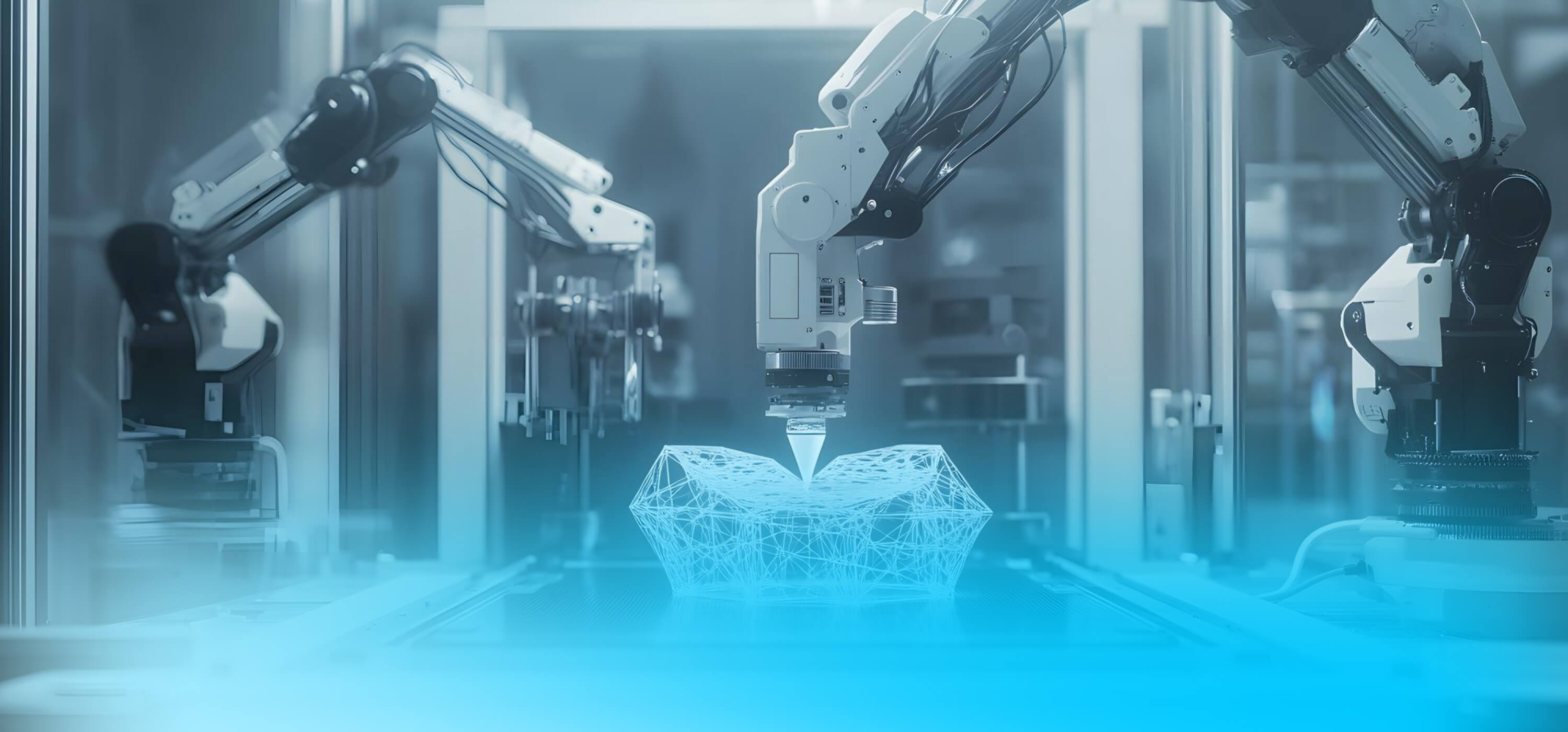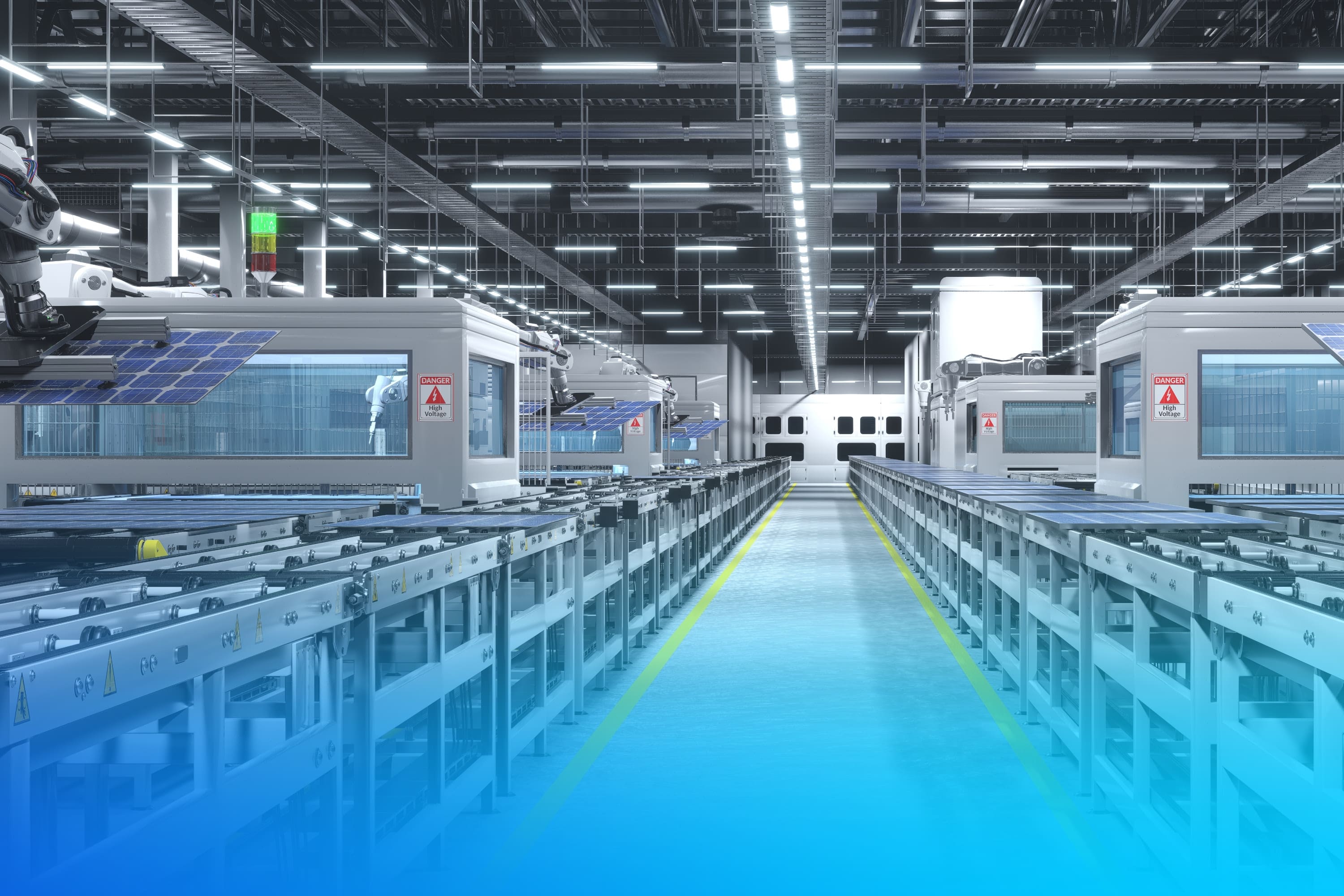AI in Manufacturing: How Smart Factories Cut Downtime by 50% (And Save Millions)
Walk into any modern factory today and you might not see robots everywhere. But AI? It's there. It’s already transforming production behind the scenes, predicting failures, fine-tuning machines, and keeping operations running smoothly.

AI in Manufacturing: How Smart Factories Cut Downtime by 50% (And Save Millions)
Walk into any modern factory today and you might not see robots everywhere. But AI? It's there. It’s already transforming production behind the scenes, predicting failures, fine-tuning machines, and keeping operations running smoothly.


Your Machines Are Talking (And AI Is Listening)
A large, multinational automobile manufacturer responsible for producing millions of vehicles annually, engaged with IBM to streamline their manufacturing processes with seamless, automated inspections driven by real-time data and artificial intelligence.
The results? They're now handling over 30 million inspections automatically.
That's just one example. Across industries, AI is doing the heavy lifting that humans used to do - and some things humans never could do.
The manufacturing industry in the US generates a whopping 1,812 petabytes of data every year, more than any other sector. Without AI, most of that data would just sit there, useless. But with machine learning algorithms, all those sensor readings and process measurements become actionable insights.

What AI Actually Does in Factories (It's Not What You Think)
Forget the sci-fi stuff. Real AI in manufacturing is more mundane but way more powerful.
Predictive Maintenance That Actually Works
57% of organizations identified sustainability as a key motivator behind their investments in digital twins, but the real payoff comes from avoiding breakdowns. AI systems monitor vibration patterns, temperature changes, and energy consumption to predict when machines will fail.
BMW estimates that AI-supported systems save teams "more than 500 minutes" (or more than eight hours) of disruption per year at the Regensburg plant alone. That's not theoretical - that's money saved every single day.
Quality Control That Never Blinks
Human inspectors get tired. They miss things. AI doesn't. The system learned quickly from images of acceptable and defective work products, which enabled the solution to be up and running within a matter of weeks.
Companies using AI vision systems are catching defects that would have made it to customers. One electronics manufacturer reduced defect rates significantly by using AI to spot microscopic flaws on circuit boards.
Supply Chains That Think Ahead
AI assists with tasks that enhance human intelligence, such as decision-making or problem-solving. In supply chain management, this means predicting demand spikes, optimizing inventory levels, and rerouting shipments before problems hit.
When COVID disrupted global supply chains, companies with AI-powered logistics systems adapted faster. They could see problems coming and adjust before their competitors even knew what hit them.

Smarter Manufacturing Starts Here
The Numbers Don't Lie
The results speak for themselves:
- 65% of manufacturing technology decision-makers said they plan technology like digital twins to optimize operations in the future
- shop floor data powered by AI and IoT can come together to reduce downtime by 50%, reduce breakdowns by 70% and reduce overall maintenance cost by 25%
- Organizations using digital twins report an average of 15% improvement in sales, turnaround time and operational efficiency, with system performance gains exceeding 25%
But here's what's interesting - 47% of IT decision-makers are unfamiliar with the concept of digital twins. So, while the technology is delivering results, many people still don't understand what's happening in their own factories.

Real Companies, Real Results
BMW's Smart Factory
BMW Group plant in Regensburg, Germany, saw these benefits in action when its in-house machine-learning models created heat maps to visualize fault patterns that maintenance workers could focus on. They're not just saving time – they're preventing problems before they start.
IBM's Manufacturing Revolution
The Inspection Suite supported the client's quality initiatives with in-station process control and quality remediation at the point of assembly or installation. The result? An automotive manufacturer went from human-based inspections to AI-powered quality control that catches issues instantly.
Bosch's AI Everything
Bosch implemented AI-driven predictive maintenance, using machine learning and analytics for real-time equipment monitoring. They deployed sensors on critical machinery and now predict failures before they happen. Reduced Downtime: AI-driven insights enabled maintenance teams to address potential failures before they led to unplanned production stoppages, cutting downtime by nearly 30%.

The Bottom Line
AI in manufacturing isn't about replacing workers with robots. It's about giving human workers better tools to do their jobs. It's about catching problems before they become disasters. It's about making better products with less waste.
93% of surveyed manufacturing employees believe that AI will substantially drive growth for the industry. They're not wrong.
The companies that figure this out first - the ones that can successfully integrate AI into their operations - are going to have a massive advantage. Not because AI is magic, but because it makes everything else work better.
Your competitors are probably already using AI, even if they're not talking about it. The question isn't whether AI will change manufacturing - it's whether your company will be leading that change or trying to catch up to it.
The manufacturing revolution is happening right now, one sensor at a time, one prediction at a time, one prevented failure at a time. And most of it is invisible – until you know where to look.

Smarter Manufacturing Starts Here
Sources
Manufacturing firms reduce downtime & operational costs with digital twins - https://www.processexcellencenetwork.com/tools-technologies/news/manufacturing-downtime-operational-costs-digital-twins
2024 digital twin statistics - https://hexagon.com/resources/insights/digital-twin/statistics
IBM - "Reducing defects and downtime with AI-enabled inspections" (Automotive case study, Feb 2024) - https://www.ibm.com/case-studies/blog/reducing-defects-and-downtime-with-ai-enabled-automated-inspections
How to Reduce Equipment Downtime: Manufacturers Turn to AI Predictive Maintenance Tools - https://biztechmagazine.com/article/2025/03/reduce-equipment-downtime-manufacturers-turn-ai-predictive-maintenance-tools





